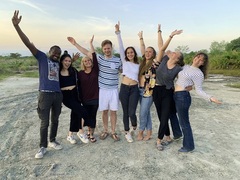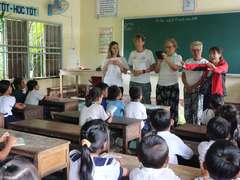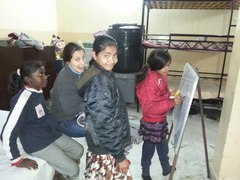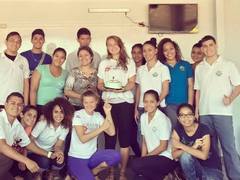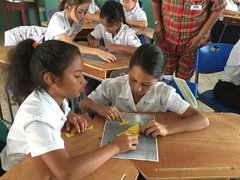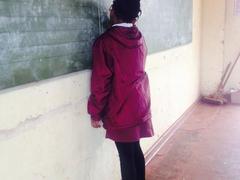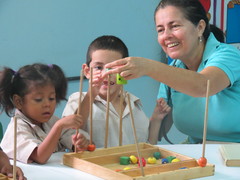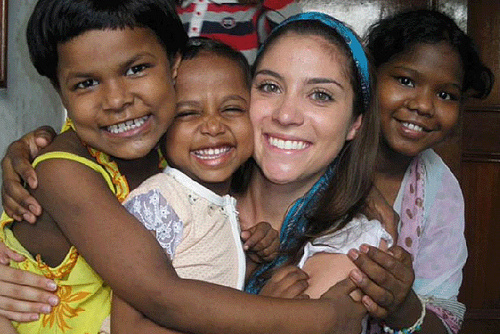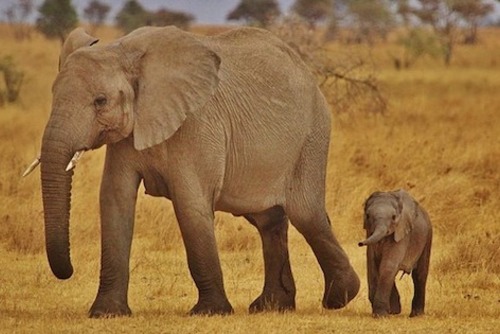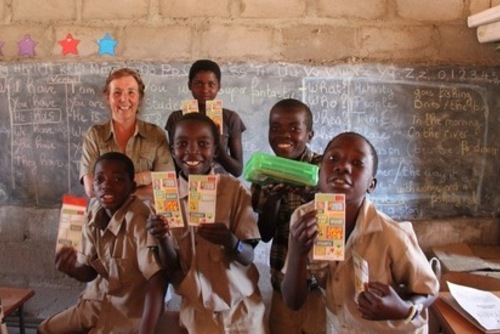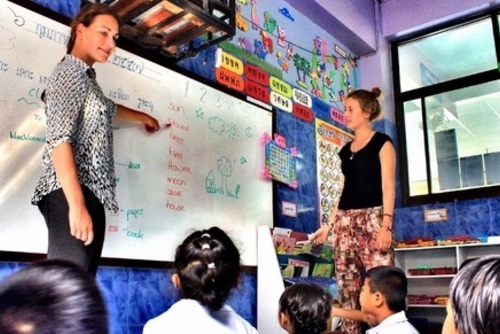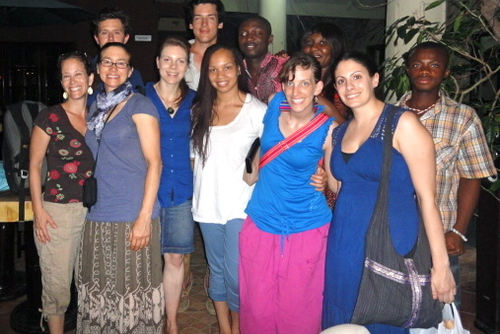Authentic Africa's mission is to facilitate the meeting of and interaction between international volunteers and Tanzanian local peoples for the purpose of gaining a mutually meaningful and productive experience. We provide support for volunteers especially as they transition into their new environment. We are dedicated to achieving the goals before every volunteer, of providing the safest, most flexible, highest quality and most affordable placement available with the greatest services possible, leaving every single volunteer satisfied and happy.
Volunteer Programs
Authentic Africa Volunteer programs
* HIV/AIDS Awareness
* Childcare
* Teaching
* Work with Local NGOs
* Orphanage Work
Introduction
There are many ways to contribute to the communities in and around Arusha. We offer volunteer opportunities teaching, working in daycare centers, orphanages, with women’s groups and more.
Many of the organizations we partner with have very limited resources. Yet others have reasonable support from donors and are relatively self-sufficient. Generally speaking, the better-resourced the organizations have greater structure to their programs. Flexibility and a proactive approach towards contributing are therefore important when working with many of the smaller placements. We will assist you to understand the needs of each program prior to the start of your volunteer assignment.
The ability to speak read and understand English is usually of great benefit to Tanzanians. The reasons for this are many. For example, the better paying jobs are often related to tourism. Secondary school classes are taught in English, while primary school education can be taught in either English or Swahili. Much of the cultural exchange between foreigners and locals are through the use of the English language. With this, many of AAV programs directly or indirectly help locals to improve their English skills.
“We partner with more than 35 schools, orphanages, and medical centers in and around Arusha. Listed below are a few of the opportunities available to volunteers.”
Daycare & Nursery Centers
“Volunteers will teach, play games and otherwise engage (this is a literal on the current website) in activities with the children. The centers are open in the mornings, and children return home at lunchtime. These centers have few resources, and volunteers are encouraged to bring supplies. Specific information on what is most needed can be discussed with AAV body prior to arrival.”
Tumaini Daycare Center
Tumaini daycare center is located about 5 minutes walk from the volunteer house. This daycare center hosts about 25 children from the neighborhood, and has one local teacher. The facility is provided by the protestant church. Many of the children are from families of poor economic background. Swahili is the primary language spoken by the children at the center; however, increased exposure to English is desired.
Ebeneza Daycare Center
Ebeneza Daycare Center currently host about 30 children between the ages of 3 and 6 years old, and enrollment is increasing. Children are taught and play games in the mornings from 8am until noon. Most of the children are from poor families, including those affected by HIV/AIDS. As a result, the daycare center sponsors many of the children directly. Two local teachers are currently on staff. Like Tumaini children are mainly exposed to Swahili and would benefit from beginning to learn English words and phrases.
TUPO Nursery School
Tumaini Positive Test Club was founded by Mr. Richard Daudi in 2001 when he discovered he was HIV positive. In 2005 TUPO opened its nursery school which about 30 children currently attend. The parents and/or the children attending the school are affected by HIV/AIDS, and some children are orphans, which in Tanzania is defined as having lost at least one parent. Only one local teacher is presently supporting these children in the nursery school. The school has few resources although porridge is typically available to the children in the morning.
Shepherds Junior Daycare Center (& Primary School)
Shepherds Junior daycare center is home to about 140 children between the ages of about 4 and 10 years. This is an English medium facility which has capacity to host upwards of 6 volunteers. There is much enthusiasm in this well organized and run center. Local teachers are typically well-trained and the programs available to the children allow them to learn and experience more than at many other schools.
Orphanages
Due to the high incidence of HIV/AIDS and its effects, there are many orphaned children in Tanzania. There are a number of orphanages in Arusha with whom AAV partners. Thus, there is quite an opportunity for volunteers who wish to work with these children. Volunteers need to understand, however, that most Tanzanian orphanages are not ‘orphanages’ in the Western sense of the word. Because of Tanzania’s family-oriented culture, orphans tend to be absorbed into extended families or are even sometimes taken in by neighbors. These added children put a huge strain on the families who take them in and so the orphans are sent to ‘orphanages’ for certain hours of the day to receive education, interaction and food. Western volunteers must understand that the children usually do not live at the orphanage and are only there for a few hours in the day and so, if placed in an orphanage, you will most likely be teaching, so prepare accordingly.
Cradle of Love
Cradle of love baby home was established in 2004 to help care for newborns to infants two years of age. The center cares for about 30 infants and demand for their services is very high, as they are relatively well resourced. When the children approach the age of two, a new home is sought for them. Many are taken back by their extended families and in some other cases get adopted or taken to another orphanage center. Cradle of Love cares for both HIV-positive and non-affected babies. Volunteers will work a full day, from morning until late afternoon, caring for the infants. This includes feeding, changing diapers, and spending time with playing games. etc.
Primary Schools
Uhuru Peak Primary School
Uhuru Peak School is an English medium school with an attendance of about 30 children ages 7-9 years old. Founded in 2007 by a former secondary school teacher, Mr Sarungi. This English medium school is rapidly growing in attendance, and currently has 4 local teachers. Volunteers will teach basic math, English, science and oversee recreational activities.
Medical Placements
For licensed medical professionals or medical students, an opportunity exists in Arusha to observe the Tanzanian healthcare system. Volunteers placed in the hospital or a clinic will work with a doctor, observing surgery and possibly administering vaccines, among other duties. It is important to remember that in this placement, a key role will be observing and cleaning in order to help the medical staff, as actually performing surgery and such is not allowed. Any volunteer placed in the medical field needs to provide relevant licenses or transcripts (whichever applies) to prove credentials.
Special Groups
Lemnas Computer Center
Lemnas computer center provides a variety of educational services related to computer literacy. Lema and Rehema, who run the center, have agreed to allow use of their facilities for basic computer instruction. Paying students are joined by non-paying students; the latter are recruited from local schools based on their Academic performance. Volunteers will provide very basic instruction on how to work on a computer. Course material is available at the center. The course is given daily for 2 hours in the late afternoon.
English Tutoring
Many children and adults in the community have little knowledge of the English language, however are eager to learn, and in some cases, their employability is increased with better English skills. Due to the lack of financial resources, they are unable to pay from school or private tutoring. This AAV sponsored program is designed to provide Basic English conversation skills, as well as writing skills. The facility at TUPO is used to host these afternoon sessions.
Volunteers will teach adult men, women and children in small group or one-on-one settings. The English language skills of the students vary, and volunteers will assess and subsequently group students accordingly. Included in the student population are Masai men indigenous to this region. The Masai are traditionally nomadic herders of cattle, and are struggling to integrate into mainstream society.
TUPO Women's Group
TUPO, or Tumaini Positive Test Club supports adults that are HIV positive. The club was founded in 2001 by Mr. Emmanuel who was tested HIV positive. The women's group is supported by its membership which is currently at about 40 women. Their aim is to work together on projects such as making arts & crafts and selling them at local markets. Volunteers would spend time with the women's group and have them focus on enjoyable activities. Volunteers are free to work with the women's group to propose and work on alternate projects. The Women’s Group meets M,W, F for about 2 hours.
Mamba Kisambo Village Projects
just west of the famous Marungu Gate, the popular trailhead for trekking Mt Kilimanjaro, lies the village of Mamba Kisambo. Nestled by an abundance of banana, papaya and eucalyptus trees, the inhabitants of this community subsist predominantly through farming and to a lesser degree raising livestock. A single main dirt road provides a place for vehicles to move produce out of town. Dirt paths provide access to several schools and to many homes. Food and other day-to-day items are sold at local open-air markets Due to difficult economic conditions; some in the village move out to find work in town, in hopes of making a better living. Others commute to and from Moshi town which is about an hour down and east by bus.
The village has many needs. Elderly would benefit from home care. Orphans, many having lost parents due to AIDS could use financial, if not emotional support to assist in a healthier development into adulthood. Women work countless hours in the field or carrying water or produce, and then return home late in the day to take care of their families. Relief and support to all these members of the community is very much welcomed.
Projects at Mamba Kisambo are available to AAV volunteers staying for a total of one month or longer. Volunteers would travel from the house near Arusha, to a home stay within the village.
English Instructors/Tutors
In Tanzania education for primary school children (Standard 1-7) is predominately taught in Kiswahili. When children progress from primary school to secondary school, they often transition from being taught in Kiswahili to English, as the latter is the language of choice for the better secondary schools. In Kiswahili medium primary schools English is taught as a subject, or about 1 hour per day, which is then generally insufficient for a student to acquire the level of English skills needed to successfully transition to an English medium secondary school. Otherwise intelligent and proficient students may perform poorly in the first few years of secondary school due to their lack of understanding of the English language. Volunteers in this program will teach and/or tutor standard 6-7 students to better prepare them for secondary school English demands. Volunteers will teach about 4 hours per day and will work in a combination of classroom, small group and one-on-one instruction. General program materials will be provided, although volunteers are encouraged to speak with their coordinators and/or school staff to modify the materials towards improving English uptake by students. Volunteers will be asked to monitor performance through quizzing the children and keeping records of written and verbal performance. No aforementioned teaching experience is necessary though a separate orientation to the program will be given to familiarize the volunteers with the materials, and teaching methods
Authentic Africa
Country: Tanzania
Location: Tanzania.[E.A.]
Authentic Africa provides safe, quality and the most affordable volunteer placements abroad in Tanzania.
Update Listing
Apply to update this profile.
Learn more about advertising opportunities or contact us for details.
Authentic Africa Reviews

Related Opportunities
Assist Teaching at Pre & Primary School, Tanzania
- Jamso Trainee GmbH
- Arusha
- 2 weeks to 1 year
- 100 to 3000+ $ Dollars (US)
Care and Teach Underprivileged Children in Mekong Delta, Vietnam
- Volunteer Vietnam
- Vietnam
- 2 weeks to 3 months
- 750 to 2500 $ Dollars (US)
Global Student Ambassador Programme in Bogota, Colombia
- Knightsbridge Schools International
- Bogota
- 2 months to 3 months
Help in an Orphanage in Jaipur, India
- Aii Group
- Jaipur, Rajasthan
- 1 week to 6 months
- 250 to 2000 $ Dollars (US)
Teaching English Abroad in Costa Rica
- Hibiscus Travels
- Ojochal De Osa
- < 1 week to 1 Year+
- 500 to 3000+ $ Dollars (US)
Volunteer with Children in Costa Rica
- The Global Work & Travel Co.
- Costa Rica
- 2 weeks to 3 months
- 1000 to 1500 £ Pound (UK)
Volunteer with kids in South Africa
- Oyster Worldwide
- South Africa
- 6 weeks to 3 months
- 1250 to 2500 £ Pound (UK)
Work with Children in Honduras
- Honduras Spanish School
- Central Ameica
- 1 week to 1 year
- 100 to 250 £ Pound (UK)
Related Articles
Volunteer at Orphanage Abroad
Volunteer and help children at centres and orphanages in the developing world. View international and local organisat...
12/11/2009
Volunteer in Tanzania
Tanzania is the largest country in east Africa and by volunteering here you will get a challenging and life changing ...
01/08/2019
Teach in Africa
Looking for a life changing experience? Apply to work as a teacher in Africa and enjoy a unique and challenging trip ...
08/03/2015
Volunteer with Children Abroad
Apply to help children in places like Africa, Asia, Latin America and Eastern Europe. On childcare projects you can ...
27/10/2013
How Volunteering in Ghana Changed My Life
Isabel Estrada-Tank had always dreamed of going to volunteer in Africa. And when she got some free time she applied and ...
06/11/2017
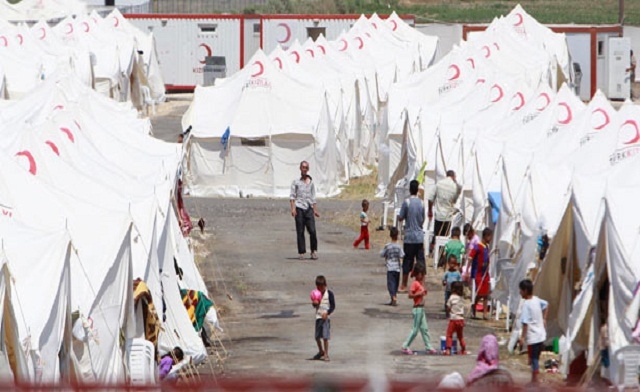
Volunteer in Turkey
View our guide to volunteering in Turkey and apply to help good causes. Find local charities, NGO's, non-profit organisa...
24/07/2019

